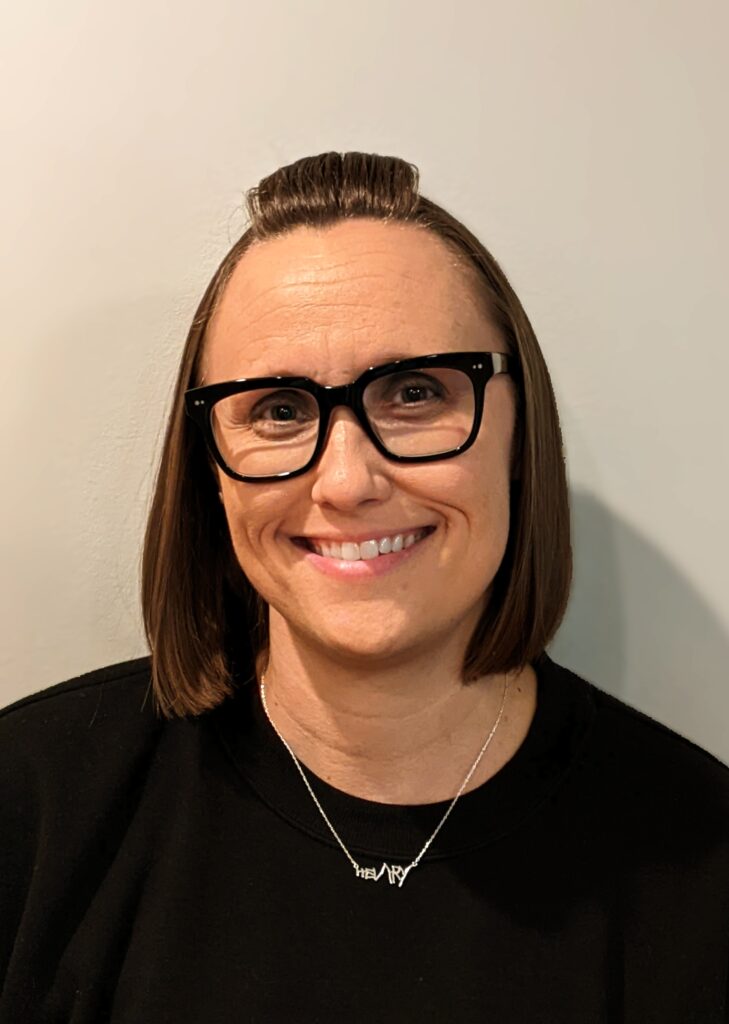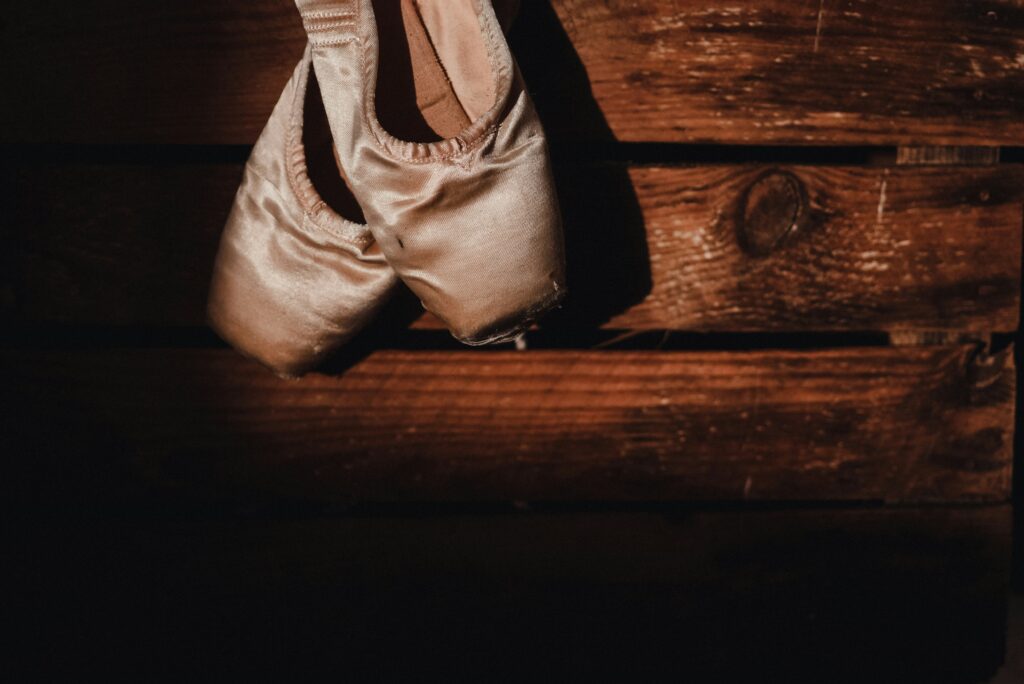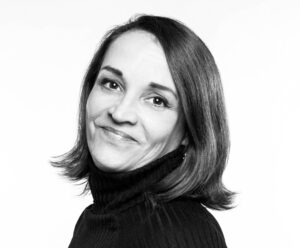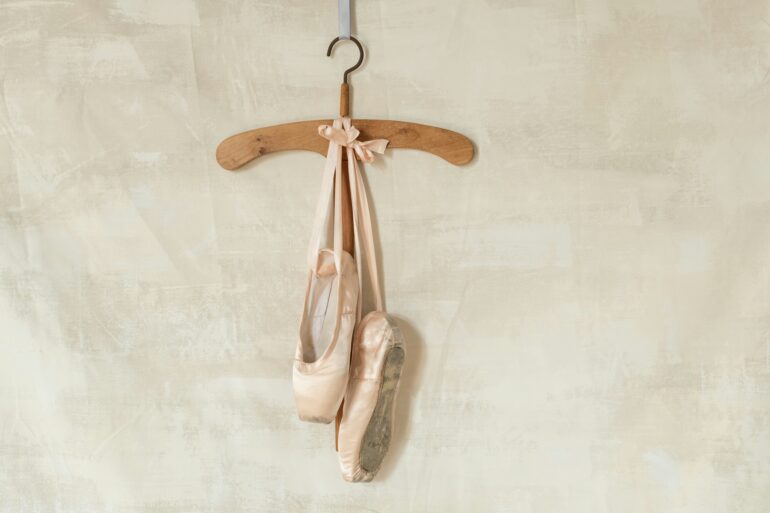If a dancer sprains an ankle or tears their anterior cruciate ligament (ACL) — common ailments in a field where they train like Olympic athletes — they immediately see a doctor or physical therapist for assessment. But what if the injury is on the inside, invisible to the outside world?
For artists at the top of their game, mental health is just as important as physical health, but usually isn’t addressed or acknowledged with the same sense of urgency. That is, until now. The Joffrey Ballet in partnership with RUSH launched a new mental health initiative aimed at providing much-needed psychiatric care for not only the dancers, but all employees. It’s the first program of its kind.
At the end of June 2023, just before their new fiscal year started, the Joffrey opened access to on-site mental health care. This new perk was a much-needed addition to the wellness center that was created during the Joffrey Tower refresh following the first few years of the COVID pandemic. A small, private room located on the mezzanine level with an in-house therapist is available for appointments during a four-hour window every Tuesday.
So far, 36 people have taken advantage. “It’s a dream come true,” said Joffrey‘s Director of Human Resources, Sarah Venuti Yates.
When President and CEO Greg Cameron came to the Joffrey over a decade ago, he was new to the performing arts world, especially ballet. As he navigated his new job, he learned about things that are a natural part of the dance world like body image and eating disorders, but he also noticed larger issues throughout the organization. “The first ‘a-ha’ moment for me was the issues our Community Engagement team was encountering in the Chicago Public Schools,” he said. “Above and beyond the dance education they did, they were also dealing with a lot of trauma. It was a tough landscape.”
The organization began doing small things like training session for teachers and faculty — then COVID hit. Cameron, Mary B. Galvin Artistic Director Ashley Wheater and the board of directors put together three committees to help figure out what they needed to do. One committee was financial modeling; one for revenue generation; and the last on health and safety. “Very quickly it became apparent that the most important one was health and safety,” Cameron said. “Because if people aren’t healthy and safe, we didn’t need to generate any money.”
They enlisted the expertise of then-board chair Dr. Larry Goodman and got to work brainstorming ideas and solutions. “When we first started kicking this idea around, Greg told me to make a wish list,” Venuti Yates said.
Being around the artists on a day-to-day basis, unlike other HR jobs she’s had in the arts field, made her notice how important it is for them to get care immediately. They already have on-site physical therapists, so why not mental therapy too?
“I thought, if I had a wand … what if we had someone here [in the building] who could see some who is struggling with a mental health issue?” she said. “It made so much sense. I can support and guide them, but I’m not a mental health professional. I thought it was quite a wish.”

Having an established, successful partnership with RUSH already in place, made the first steps easy. Board member Dr. Michael Hanak reached out to his colleagues in RUSH’s Department of Psychiatry to see if this idea was even possible. “Dr. Hanak was very plugged into our program in the intersection of physical and mental health,” said Erika Owen, therapist and case manager at RUSH who also works in collaborative care and women’s health. “Once I figured out this was something that really could work, I got excited, but we didn’t have the staff to send to start the pilot. I wanted to do it so badly.” So, she volunteered. She is now RUSH’s Wellness Liaison to the Joffrey.
The program works like this: any employee or dancer can make an appointment with Owen. They can walk in her office, fill out a form online, or scan a QR code. They sign up for an in-person or virtual appointment in 15-, 30- and 60-minute increments. They can use their personal emails and the information goes through a third-party app, keeping everything confidential. They can specify what gender of therapist they are wanting, as well as requesting a referral to an outside therapist. The dancers only have e a one-hour lunch break, so many referrals are due to the limited time constraints.
The main difference is access. Most employers are giving employees information to a health care app they must navigate themselves, as well as understanding the nuances of insurance coverage. “There is literally nothing happening that is just like this program,” said Owen. “I’m part of a giant medical system and I’m within case management. As a part of a larger institution, I can help with other medical needs as well. It really is this combination of medical center access, plus the therapy that has made this unique.”
Administrative employees make up over half of Owen’s patients. Topics include anxiety, health crisis or chronic injury, FMLA or disability leave, career decisions and — of course — office politics. Another major topic is grief. “Grief is universal. So many employees are feeling it at any given time,” Owen said. “Eventually you have to go back to work and if it isn’t given the attention it needs, it’s going to affect your work.”
Venuti Yates is already seeing the benefits of the initiative, now in its sixth month.
“It’s been a real shift,” she said. “When I see how the teams are working together … it’s on a different playing field. Now, by the time they’re getting to me, they’ve already had a conversation with Erika to deal with it on an emotional, mental health standpoint. So they’re coming to me ready to work with me as a coach and find solutions. That makes a huge difference.”

Owen refers many dancers to a sports-specific providers at the Illinois Sports Institute, founded by Dr. Jenny Conviser, who is not only a Licensed Clinical Psychologist specializing in sports psychology, she’s also an Eating Disorder Specialist. “Jenny has been pivotal in how we approached the culture of the company,” Owen said. “Many dancers come in after casting decisions are made. It seems so inconsequential to people outside of this world … but a lot of what we’re working on is circles of control — what they have control over versus what is completely subjective.”
Learning how to manage rejection and taking the emotion out of words like “no” help tame insecurities that plague the artists whether they’re new or a veteran. Even the students. “I just gave a presentation to the pre-professional students about resilience and coping,” Owen said. “I modeled it off some of the work I’m doing with the professionals. It really is that resilience piece that is important. There are going to be highs and lows. What tools do we have to make the lows less low? We’re trying to take that self-worth piece out of it.”
The Joffrey wants to grow the initiative to offer more workshops and bring in other health care professionals to reach more people. They aren’t there yet. “I’d love to expand it,” said Venuti Yates. “Erika and I have been talking about how we can logistically start supporting those pre-professional students. That’s when those conversations really need to start.”
Cameron takes it one step further. “What we created is not so complicated that it couldn’t be done elsewhere. We’re touching the lives of a thousand dancers a year. How do we build on this and present this model to our peers across the country?”
In one word: funding. Currently, the program is being self-funded out of Joffrey’s general operating budget. “If we can better articulate why this is important, I think it will be as easy to fundraise for this initiative as it is to raise money to commission a new ballet,” said Cameron. “We are where we are because we put people first. We didn’t put money and the financial modeling first,” he said. “Investing in people is what we do here at the Joffrey. We’re not perfect, but we try to create a culture of trust and respect. That’s powerful and I think it sets us apart.”
For more information on this initiative or to make a donation, email info@joffrey.org or visit the Joffrey Ballet website.
More from Better:
- 29 of The Best Things to Do in Chicago and the Suburbs This February 2024
- ‘Determined to Prove a Villain’: Paralympian Katy Sullivan Takes on ‘Richard III’ at Chicago Shakespeare Theater
- Warming Hearts and Hands: How a Holiday Tradition Evolved from Seasonal Generosity to Lasting Impact

Vicki Crain is a Chicago-based, freelance arts and culture writer. Her work has recently been featured in Chicago Magazine, and See Chicago Dance, as well as on her blog/podcast Rogue Ballerina. The second book in her children’s book series, The Furry Princess, will be published in 2024.

